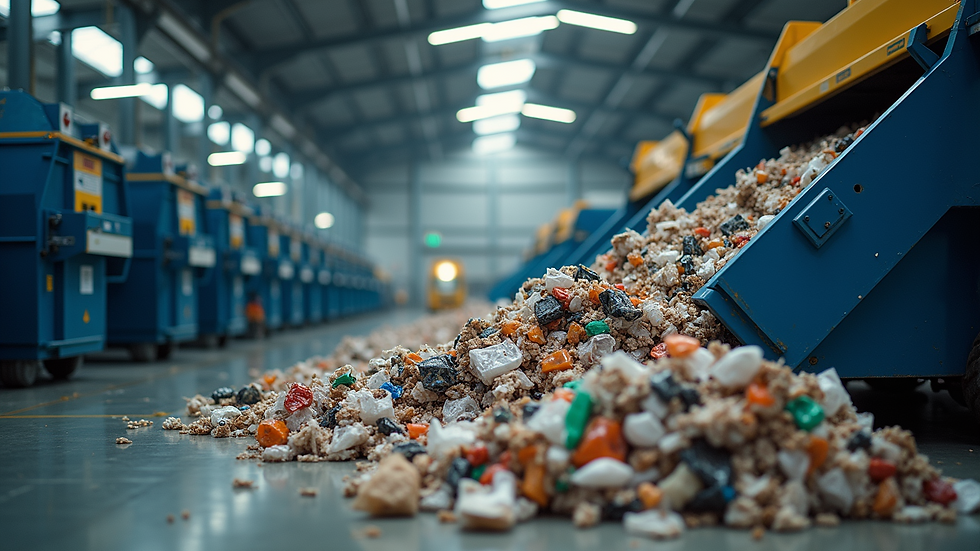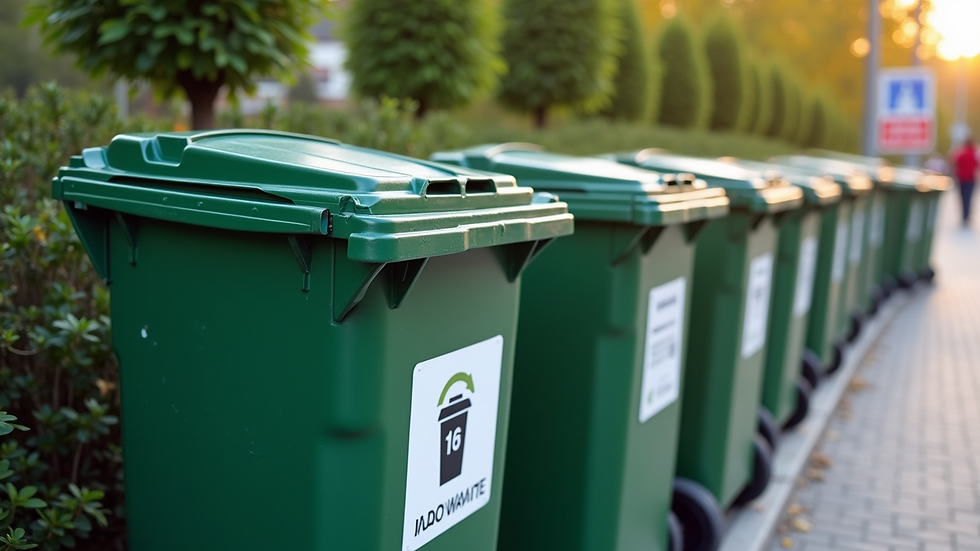
Innovative Solutions for Modern Waste Challenges
- Greenassets.in

- Aug 25, 2025
- 3 min read
Modern society faces increasing challenges in managing waste effectively. Rapid urbanization, population growth, and changing consumption patterns have led to a surge in waste generation. This calls for innovative solutions that not only reduce waste but also promote sustainability and environmental health. In this article, we explore practical and forward-thinking approaches to tackle modern waste management challenges.
The Importance of Effective Waste Management
Effective waste management is crucial for maintaining public health, protecting ecosystems, and conserving resources. Poor waste handling can lead to pollution, spread of diseases, and depletion of natural resources. Governments and communities worldwide are adopting new technologies and strategies to improve waste collection, segregation, recycling, and disposal.
One key aspect is raising awareness about waste reduction and encouraging responsible consumer behavior. For example, many cities have introduced strict regulations on single-use plastics and incentivized recycling programs. These efforts help reduce landfill waste and promote circular economy principles.

Innovative Technologies in Waste Management
Technology plays a vital role in revolutionizing waste management. Several innovative solutions have emerged to address the complexities of modern waste streams:
Smart Waste Bins: Equipped with sensors, these bins monitor fill levels and optimize collection routes, reducing fuel consumption and operational costs.
Waste-to-Energy Plants: These facilities convert non-recyclable waste into electricity or heat, reducing landfill dependency.
Robotic Sorting Systems: Advanced AI-powered robots can identify and separate different types of waste more efficiently than manual sorting.
Biodegradable Materials: Development of eco-friendly packaging and products that decompose naturally helps reduce plastic pollution.
Implementing these technologies requires investment and collaboration between governments, private sectors, and communities. However, the long-term benefits include reduced environmental impact and improved resource efficiency.
What are the 4 types of waste management?
Understanding the different types of waste management is essential for designing effective strategies. The four main types include:
Landfilling: The most common method where waste is buried in designated areas. Modern landfills are engineered to minimize environmental harm.
Recycling: Processing waste materials to create new products, conserving raw materials and energy.
Composting: Biological decomposition of organic waste into nutrient-rich soil amendments.
Incineration: Burning waste at high temperatures to reduce volume and sometimes generate energy.
Each type has its advantages and limitations. For instance, landfilling is cost-effective but can cause long-term pollution, while recycling conserves resources but requires proper segregation. Combining these methods strategically can optimize waste management outcomes.

Community Engagement and Policy Innovations
Successful waste management depends heavily on community participation and supportive policies. Governments can implement regulations that encourage waste reduction, such as bans on certain plastics or mandatory recycling targets. Public education campaigns help change attitudes and behaviors towards waste.
Communities can also initiate local waste management projects that focus on:
Source Segregation: Encouraging households to separate waste at the source for easier recycling.
Upcycling Workshops: Teaching creative ways to reuse materials and reduce waste.
Clean-up Drives: Organizing events to collect litter and promote environmental stewardship.
Collaborative efforts between citizens, businesses, and authorities create a culture of sustainability and shared responsibility.
Future Trends in Waste Management
Looking ahead, waste management is expected to become more integrated with smart city initiatives and circular economy models. Some promising trends include:
Internet of Things (IoT) Integration: Real-time data collection and analytics to optimize waste collection and processing.
Circular Economy Practices: Designing products for reuse, repair, and recycling to minimize waste generation.
Advanced Biodegradable Solutions: Innovations in materials science to replace conventional plastics with sustainable alternatives.
Decentralized Waste Treatment: Small-scale, community-based waste processing units to reduce transportation and improve efficiency.
Adopting these trends will require continuous innovation, policy support, and public engagement to create resilient and sustainable waste management systems.

For those interested in practical implementations, exploring waste management projects can provide valuable insights and inspiration.
Embracing Sustainable Waste Practices Today
Addressing modern waste challenges demands a combination of technology, policy, and community action. By adopting innovative solutions and fostering a culture of sustainability, we can reduce environmental impact and conserve resources for future generations. Whether through smart technologies, effective segregation, or community initiatives, every effort counts in building a cleaner, healthier world. Start by supporting local programs and advocating for responsible waste management in your area. Together, we can transform waste from a problem into an opportunity.









Comments